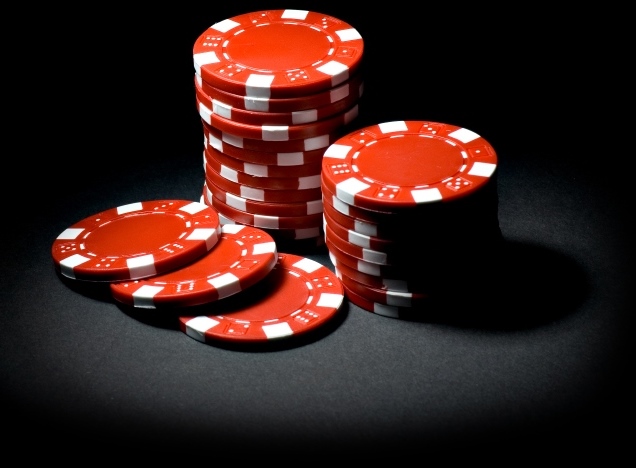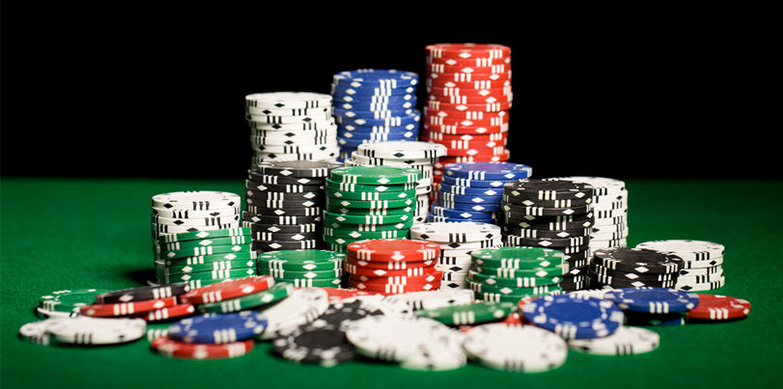- The Reviews
- UNIBET Review 2026
- MANSION Review 2026
- BETSAFE Review 2026
- BWIN Review 2026
- BETSSON Review 2026
- JETBULL Review 2026
- WILLIAM HILL Review 2026
- BET-AT-HOME Review 2026
- ZET Casino Review 2026
- CASINO.com Review 2026
- Mr GREEN Review 2026
- 888 Review 2026
- VEGAS CASINO ONLINE Review 2026
- LAS-VEGAS USA Casino Review 2026
- SUN PALACE Casino Review 2026
- ROYAL ACE Casino Review 2026
- PLANET 7 Casino Review 2026
- CLUB WORLD Casino Review 2026
- SILVER OAK Casino Review 2026
- Free Casino Games
US
- Best Online Casino Games Guide
- Choose Your Best Online Casino
- The Best Casino Games
- Online Card Games
- Best Online Machine Games
- Table Games
- Online Slots
- Complete Modern Online Blackjack Guide
- Free Blackjack Basic Strategy
- Simplified Blackjack Playing Strategy
- How to Play Blackjack Online Like Pros
- Advanced Blackjack Rules and Strategy
- Step-by-Step Blackjack Playing Procedures
- Blackjack Playing Options Guide
- Master Blackjack Card Counting
- Modern Blackjack Card Counters Challenge
- Which is the Best Blackjack Betting System?
- Nine-Count Blackjack Strategy Review
- Blackjack Myths and Errors
- Online Roulette
- Sportsbook
- Online Poker
- Online Video Poker
- Online Scratch Cards
- Online Bingo
- Online Baccarat
- Online Craps
- Asian Casino Games
- Online Keno
- Online Sic Bo
- Casino Bonuses
- Online Casino Reviews
- UNIBET Review, Casino, Sportsbook, Poker & Live Dealers
- BETSAFE Review, Casino, Poker, Live Dealers & Sportsbook
- MANSION Review, Casino, Sportsbook & Live Dealers
- BWIN Review, Sportsbook, Casino, Poker & Live Dealers
- BETSSON Review, Sportsbook, Casino, Live Dealers, Poker
- JETBULL Review -Casino, Sportsbook, Live Dealers
- BET_AT_HOME Review, Sportsbook, Casino, Poker, Live Dealers
- WILLIAM HILL Review -Casino, Sportsbook, Live Dealers, Poker
- ZET Casino Review
- Mr GREEN Review -Casino, Sportsbook & Live Dealers
- CASINO.com Review -Online Casino & Live Dealers
- Las-Vegas USA Casino Review
- Sun Palace Casino Review
- Royal Ace Casino Review
- Planet 7 Casino Review
- Club World Casino Review
- Vegas Casino Online Review
- Silver Oak Casino Review
- Free Casino Games
Online Casino Jackpots 2026
- Casino Jackpots are pretty much the best thing about playing Online.
- Progressive Jackpots accumulate fast and are available on the most popular Slots.
- There are sometimes conditions attached to Jackpot Payouts, depending on the Software.
Spin to Win
Winning the Casino Jackpot is one of the most striking events that will ever happen to you. A rush of instant success that brings very visible cash rewards. Some of the best Online Casino Jackpots are progressive, where everyone that is playing is helping to fill up the big prize pot of gold at the end of the rainbow.
- Bonus Amount: $3,000 up to $10,000. The best daily bonuses on the internet.
- Games: An incredible number of slots, table games, and video pokers, including HTML5 games.
- Strong security protocols of 128-bit encryption
- Audited and guaranteed fair by TST
- Website: https://www.lasvegasusa.eu/casino/
- Established: 1999
- Software: Real Time Gaming (RTG)
- US and Canadians players supported
- Platforms Supported: Windows, Mac, iPhone, iPad, & Android.
- Type of Casino: Online & Instant or download.
- Free Slots Games: Yes
- Customer Support: 24/7 live chat support, as well as a toll-free phone number: +506-283-0061, and e-mail support
Write your review of Las-Vegas USA Casino
- Website: http://www.royalacecasino.eu
- Casino Type: download client, instant play, and mobile
- Software: Real Time Gaming (RTG)
- Owner: Emoney Processing Casinos LTD
- Established: 2009
- Casino Promotion: 100% Match Deposit Bonus up to $4,000, Daily and Weekly Bonuses
- Coupon Code: CASINO400
- Currencies: US$, Euros, Yen, Pounds, Bitcoin
- Mobile: both desktop and mobile compatibility
- VIP Program: 5 levels Available
- Support: World Class Support, 24/7 live chat & Toll-free phone number for USA and Canada
- Security: 128-bit SSL encryption
- Certified by: CDS (Central Disputes System)
- Languages: English
- License: Costa Rica
Write your review of Royal Ace Casino
- Bonus: 400% up to $10,000.
- Website: https://www.sunpalacecasino.eu/
- Software: Real Time Gaming (RTG)
- Deposit Methods: ClickandBuy, MasterCard, Money Order, Neteller, Visa Electron, instaDebit, Visa, MST Gift Card, Skrill, Bitcoin
- Withdrawal Methods: ACH, Cheque, Money Order, Neteller, Skrill
- Withdrawal Times: EWallets: 2-5 days, Credit / Debit Cards: 10-12 days, Bank Transfers: 7-12 days, Cheques: 21-28 days
- Pending Time: 3-7 days
- Withdrawal Limit: $5,000 per week
- Games: Incredible number of games of all types
- support: 24/7 through live chat, phone, or e-mail
- Support Response Time: 24 hours via email or Instant using Live Chat.
- Encryption: 128-bit SSL
- Audited and found fair by TST
- Languages: English.
- Progressive Jackpots: up to Million-Dollar.
- Restricted Countries: Bosnia, Costa Rica, Malaysia, Morocco, Netherlands, Russia.
Write a review of Sun Palace Casino
- Bonus: 320% Bonus + 45 Free Spins
- Casino Website: https://www.silveroakcasino.com/
- Casino Promotion: 320% Match Deposit Bonus up to $10,000 in 10 first deposits, up to $100 No Deposit Bonus, Weekly and Monthly Cashback, and much more.
- Casino Type: download client, instant play, mobile, and live dealers
- Software: Real Time Gaming (RTG)
- Live Casino: Available Live Dealers Casino
- Owner: Emoney Processing Casinos LTD
- Established: 2009
- Currencies: US$, Euros, Yen, Pounds, Bitcoin
- Mobile: both desktop and mobile compatibility
- VIP Program: 5 levels Available
- Support: World Class Support, 24/7 live chat & Toll-free phone number for USA and Canada
- Security: 128-bit SSL encryption
- Certified by: CDS (Central Disputes System)
- Languages: English
- License: Costa Rica
Write your review of Silver Oak Casino
- Bonus: First Deposit 350% Bonus + 25 Free Spins
- Website: https://www.planet7casino.com/
- Casino Type: download client, instant play, mobile, and live dealers
- Software: Real Time Gaming (RTG)
- Live Casino: Available Live Dealers Casino
- Owner: Emoney Processing Casinos LTD
- Established: 2008
- Casino Promotion: 200% Match Deposit Bonus up to $4,000, and much more.
- Currencies: US$, Euros, Yen, British Pounds, Bitcoin
- Mobile: both desktop and mobile compatibility
- VIP Program: Available
- Support: World Class Support, 24/7 live chat & Toll-free phone number for USA and Canada
- Security: 256-bit SSL encryption
- Certified by: CDS (Central Disputes System)
- Languages: English
- License: Costa Rica, Cyprus, the United Kingdom, and the Netherlands.
Write a review of Planet 7 Casino
- Bonus: Get 300% Match up to $3000 FREE Welcome Bonus
- Website: https://www.clubworldcasinos.com
- Software: Real Time Gaming (RTG)
- Mobile: Android, iPhone, iPad
- Casino Type: Download, Instant Play, Mobile
- Currency: US dollars
- Language: English
- License: Curacao
- Owner: Club World Casinos Group Casinos
- Established: 2005
- Audit: RTP Not publicly audited
- Currency: US dollars
Write a review of Club World Casino
- Bonus: Get 300% Match up to $3000 FREE Welcome Bonus
- Website: https://vegascasinoonline.eu/
- Established: 1999
- Software: Real Time Gaming (RTG)
- Currencies: US$
- US and Canadians players: supported
- Bonus Amount: up to $11,000 Match Bonus
- Platforms Supported: Windows, Mac, iPhone, iPad, & Android.
- Type of Casino: Download & Online Instant Play.
- Free Slots Games: Yes
- Owner: Main Street Vegas Group Casinos
- License: Costa Rica
- US Customer Support: (877) 691-5124
- Canada Customer Support: (888) 387-6717
- Email Address: [email protected]
- Live Chat: Yes
- Response Time: 24 hours via email or Instant using Live Chat.
- Languages: English.
- Progressive Jackpots: up to 1 Million-Dollar.
Write a review of Vegas Casino Online
Winning Isn’t Just About Spinning
Of course, there are certain regulations and rules about winning the Jackpot. Some Online Casinos using RTG Software are unable to pay out the entire Jackpot at once, with payments being split up into installments.
Again, make sure you check out the Jackpot Rules before you give winning one a spinning chance and check with Customer Support if there is anything you are unsure of. A lot of thought goes into providing Casino Jackpots and setting up Casino Games with Progressive Jackpots, so most Casinos are well prepared for you to win, but on their terms!
Progressive versus Non-Progressive Jackpots
The best definition of jackpots I found is “An accumulated amount that is contributed to, and available within, the prize pool”.
Ultimately, all jackpots are funded by an accumulation of player expenditures (losses), but progressive (aka cumulative) jackpots incrementally grow in value as players make additional bets.
In contrast, non-progressive jackpots are for a fixed prize amount – even though that amount is funded by an accumulation of losses from other players.
See our article about Progressive Jackpots
Deterministic versus Non-Deterministic Jackpots
Deterministic jackpots have a guaranteed payout after a fixed number of gambles (the target), which is determined at random and concealed from the player’s view.
As a result, the likelihood of winning necessarily grows as players continue to bet, although the interval until the next payoff is not known.
It is difficult for the player to capitalize on this continuous improvement in the likelihood of winning, however, as the interval until the next jackpot win could be very long.
As a possible exception, it was reported on syndicates of players that attempted – with some apparent success – to dominate play on machines that draw near to an inevitable payoff.
Non-deterministic jackpots, in contrast, have a constant probability of winning. Potential awards are assessed at random with every bet.
While the probability of winning the jackpot is fixed in non-deterministic jackpots, this probability of winning may be on each bet placed or the cash value of each bet.
If the chance of winning is based on each bet placed then, perversely, a series of small bets has a greater likelihood of winning a jackpot than one large bet of equal cash value.
Hidden Jackpots
In a hidden jackpot, the prize amount is not shown to the player, although the existence of a jackpot prize is advertised.
This may cause some extra excitement and enjoyment for players due to the unknown – and therefore potentially unlimited – value of the top prize.
Mystery Jackpot
In a mystery jackpot, the “winning state” of the machine (e.g., combination of symbols) is not shown to the players.
Mystery jackpots can be a natural consequence of jackpot systems that are independent of the core operation of the stand-alone slot (we will call it for now on: “Electronic gaming machine”).
Jackpot systems may be added to several different types of machines, even machines from different manufacturers, and thus each electronic gaming machine bet is essentially a lottery draw for the grand prize of the jackpot system.
In a non-combinative mystery jackpot any losing sequence of symbols on the electronic gaming machine is just as likely to win the jackpot prize as a winning sequence, because the jackpot system is essentially independent from the machine and uses the electronic gaming machine only as a triggering device.
In contrast, a combinative mystery jackpot has a winning sequence of symbols on the machine, but this combination is not shown to players prior to winning the jackpot.
Linked versus Stand-Alone Jackpots
Linked jackpots draws can be won on several machines (often a bank of machines located in close proximity) and the trigger of a jackpot win on one machine necessarily precludes a win on another.
Stand-alone jackpots, in contrast, are tied to one machine, where the prize can only be claimed on that machine.
Linked jackpots might be either shared only within the same venue (or local area), or shared across multiple venues (wide-area).
Multiple venues that share a jackpot often belong to the same organization, but jackpots can also be shared across organizations though a common relationship with the electronic gaming machine manufacturer or other contracting agency that administers the jackpot scheme.
Theories Applied to Jackpots
Some major theories that attempt to explain the purchase of lotteries, and by extension, at least some of the purchase value of slots with jackpots.
Slot machines can be considered a bundled product that combines regular play and accompanying modest wins with a potential (but highly improbable) major prize or prizes.
Slot machines without jackpots typically have higher payouts on regular play, as the machines do not need to contribute to funding the rare jackpot prizes.
If these higher payouts can be recognized by players, they may contribute to a relatively more attractive playing experience.
Given the large short run variability in outcomes on EGMs, however, it is far from certain that the actual payout differences between jackpot and non-jackpot EGMs are detectable.
Instead, the lottery-like component of the machine, in the form of the jackpot prize, may improve the attractiveness of the machines despite the lower long run payouts during regular play.
It is this “added value” of the potential jackpot that must be assessed. Both economic theory addressing decisions under risk.
Was This Helpful?
Recommend us on Facebook










